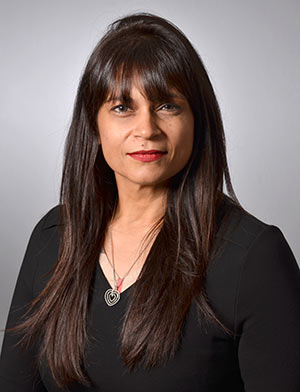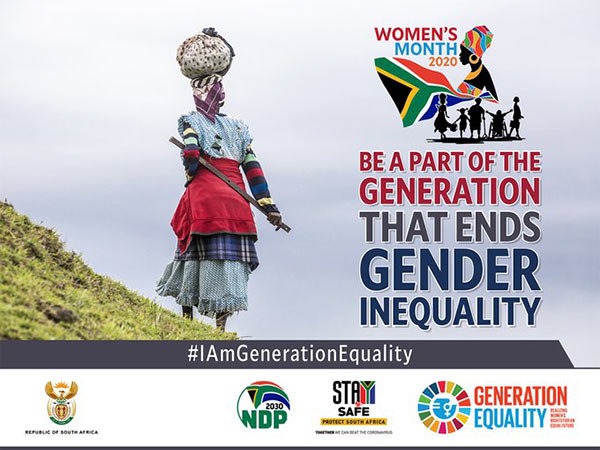

Dr Roshelle Ramfol (Senior Lecturer: Department of Taxation) is the first black female staff member at the College of Accounting Sciences to receive a PhD.
"I've come to believe that each of us has a personal calling that’s as unique as a fingerprint - and that the best way to succeed is to discover what you love and then find a way to offer it to others in the form of service, working hard, and also allowing the energy of the universe to lead you." - Oprah Winfrey
For Dr Roshelle Ramfol, the first black female staff member at the College of Accounting Sciences (CAS) to receive a PhD, these are guiding words.
The senior lecturer in the Department of Taxation within CAS and recipient of The Conversation Research Communication recognition award for the most read article (2019), shares her PhD journey with us. She explains: "Looking back on my PhD candidature, the words of Oprah Winfrey resonate strongly within the depths of my soul. Typically, the decision to embark on a PhD is taken with the aim of surpassing knowledge barriers. Whilst the idea of channelling one’s higher self in pursuit of solving humanity’s problems holds exciting prospects, it is not a decision you suddenly wake up to one morning. This was particularly true for me, as there were a series of events that led me down this path. Today, I recognise this as the guiding hand of the universe."
At the time that I decided to pursue a PhD, I went through a difficult divorce and was left to reconstruct my life. Embarking on a doctorate offered me precisely the opportunity I needed - a chance to channel my energies and harness my talents towards answering a critical question that South Africa faces: Does the country receive its fair share of revenue from the mining sector? And so began my research, culminating in my thesis, entitled Taxation of the extractive industry in the context of contemporary international fiscal regimes: Lessons for South Africa.
My curiosity was sparked by empirical evidence which suggests that resource-rich countries are prone to poor economic performance. Yet some countries have benefited from their resource endowment. I was curious to establish what policy decisions could be taken to ensure that the words of the Freedom Charter, "the people shall share in the country’s wealth", ring true.
My PhD journey, like the path travelled by the many scholars before me, holds tales of adversity. Equally, it was filled with exhilarating moments relating to opportunities to present, collaborate and grow my impact skills. Essentially, it is the challenges that you face that build your character and furnish you with the confidence and ability to interrogate and solve complex multidisciplinary problems.
Success is never achieved alone: it is the cumulative efforts of the people around you who believe in you. I am grateful to my colleagues in the Department of Taxation and the College of Accounting Sciences, my former employer and my children, who supported me and motivated me during my studies. As an employer Unisa has invested in my research career. Last year I attended a skills-development workshop entitled "The Art of Research," geared for early career and emerging researchers. The experience was profound, not only because I won an award for the most read article by a Unisa academic in The Conversation, but also because the general public engaged with my research.
I am both honoured and humbled to carry this torch for my fellow sisters in the college. The world is rapidly evolving, but gender diversity and, in particular, the global representation of women of colour are not keeping pace. I encourage my sisters not to let adversity deter you. Pursuing your research interests gives you an opportunity to find your own space to shine. In the words of Maya Angelou: "My mission in life is not merely to survive, but to thrive; and to do so with some passion, some compassion, some humour, and some style."
Dr Chihiku Chikutuma, Acting Head: Office for Graduate Studies and Research (CAS), had the following congratulatory message: "The College of Accounting Science is truly proud of Dr Ramfol’s achievement. Being the first black woman to graduate with a PhD in Accounting Sciences is indeed a ground-breaking achievement that is shared by both the college and the university at large. We are very proud of her success."
We have a total of 26 female staff members who are currently busy with their PhD studies, and the college has put systems in place to support them. Our master’s and doctoral candidates are assigned to supervisors of their choice, they receive methodological support from a qualitative methods expert and a quantitative methods expert (independent contractors), there are mentors to assist and motivate staff, various training initiatives are offered internally (such as qualitative and quantitative research methods workshops), training is offered externally (for example the Stellenbosch ADA Winter School and Stellenbosch ADA Summer School), and informal support groups have been created among staff members.
* Interviews by Ntsako Mdhluli, Communication and Marketing Specialist, College of Accounting Sciences

Publish date: 2020-08-27 00:00:00.0